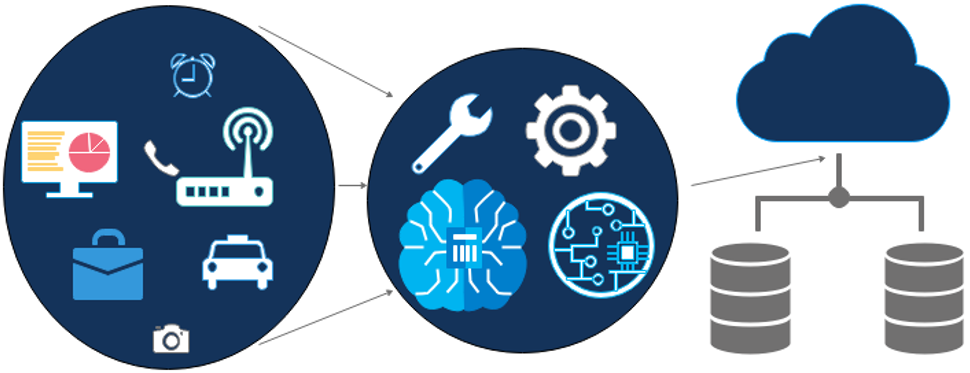What is the CAN Bus? – The Ultimate Beginner’s Guide
The Language of Machines: A CAN Bus Journey
The Silent Symphony
Dawn broke over the city as Maya stepped out of her apartment building. The streets were quiet, save for the occasional hum of a passing car. She checked her watch; 6:30 AM. Perfect timing. Her friend Ethan would be arriving any minute for their road trip.
“Right on schedule,” Maya thought as Ethan’s silver sedan pulled up to the curb. She tossed her backpack into the trunk and slid into the passenger seat.
“Morning, Professor,” she teased, knowing how much Ethan loved explaining the inner workings of cars to anyone who would listen.
“Morning, Maya,” Ethan grinned, tapping the dashboard affectionately. “Ready for a little adventure?”
As they pulled away from the curb, Maya noticed the dashboard light up with colorful displays navigation, climate control, engine status, all working in perfect harmony.
“It’s amazing how everything just… works together,” she mused, gesturing at the dashboard. “How does your car know to do all these things at once?”
Ethan’s eyes lit up. There was nothing he loved more than a chance to explain automotive technology.
“That, my friend, is the magic of CAN Bus.
The Birth of a Language
“CAN what now?” Maya raised an eyebrow.
Controller Area Network Bus, Ethan replied, guiding the car onto the highway. “It’s like… imagine if all the systems in this car needed to talk to each other, but they all spoke different languages.”
“Sounds chaotic,” Maya laughed.
“Exactly! Back in the day, that’s exactly how it was. Each system – the engine, brakes, airbags – they all had their own wiring and couldn’t easily communicate. It was a mess of wires and complexity.”
Maya glanced at the sleek interior of the modern car. “Obviously, that’s changed.”
“In 1986, a company called Bosch changed everything,” Ethan continued, his voice taking on the quality of a storyteller. “They created CAN Bus, essentially a universal language and communication highway for all electronic components in a vehicle.”
As they drove, Ethan told Maya how before CAN Bus, cars were simple creatures with basic needs. A few wires, an engine, and mechanical parts were all they required. But progress demanded more sophisticated engines, safety systems, entertainment features and with this complexity came a problem: communication.
“Think about it like this,” Ethan said as they stopped at a red light. “Imagine if every person in a city could only talk to one other person through a dedicated phone line. You’d need millions of phone lines crisscrossing everywhere!“
“That sounds inefficient and messy,” Maya replied.
“Exactly! That’s what car wiring was like before CAN Bus. But CAN Bus is like giving everyone in that city access to a group chat. Now, every system can communicate over the same network, sharing one communication line. One wire replaced hundreds.”
The Highway of Data
As they merged onto the interstate, traffic began to pick up. Cars jockeyed for position, some speeding ahead while others maintained their pace in adjacent lanes.
“See this highway?” Ethan gestured through the windshield. “This is exactly how the ‘Bus’ in CAN Bus works.”
Maya watched the ebb and flow of traffic with new interest.
“The ‘Bus’ is just a communication pathway,” Ethan explained. “Like this highway, it allows multiple ‘vehicles’ of data to travel together. Some messages are more important than others – they’re like ambulances with sirens blaring, getting priority over regular traffic.”
“So when you hit the brakes…” Maya began.
“Exactly!” Ethan’s face lit up. “When I press the brake pedal, a high-priority message rushes down the CAN Bus highway, telling multiple systems: ‘Hey! We’re stopping!’ The brake lights receive the message and illuminate. The anti-lock brake system activates if needed. The engine adjusts its power. All these conversations happen in milliseconds over a single pathway.”
Maya watched as Ethan changed lanes smoothly, the car responding to his commands instantly. “It’s like an orchestra,” she mused.
“The perfect metaphor,” Ethan nodded appreciatively. “CAN Bus is the conductor, ensuring every instrument plays exactly when it should.”
When Messages Matter Most
About an hour into their journey, a truck ahead of them suddenly slowed. Ethan had been explaining the finer points of error correction in CAN Bus communication when his car’s collision warning system beeped sharply.
The car responded instantly – reducing speed, tightening seatbelts, and preparing the brake assist system – all before Ethan had fully registered the danger.
“That,” he said after they had safely changed lanes, “was CAN Bus in action when it matters most.”
Maya looked impressed. “All those systems reacted at once.”
“And in the right order,” Ethan added. “That’s the beauty of the priority system. The most critical safety messages get through first. If two systems try to send messages simultaneously, the one with the highest priority – usually safety-related – gets through first.”
“What if there’s an error in the message?” Maya asked, intrigued now.
“CAN Bus has that covered too. It’s like sending a text message with a built-in spell checker. If a message gets corrupted during transmission, the system detects it and requests a retransmission. For critical systems, that can happen multiple times per second.”
The Birth of a Revolution
As they stopped for coffee at a roadside diner, Ethan continued his story, telling Maya about the origins of this revolutionary technology.
“Picture this: It’s the early 1980s. Engineers at Bosch are struggling with the growing complexity of vehicle electronics. They need a solution that’s efficient, reliable, and flexible.”
Maya sipped her coffee, genuinely interested now. “So they created CAN Bus?”
“They did. The development started in 1983, and by 1986, they presented it at the Society of Automotive Engineers (SAE) conference. It was revolutionary – a communication protocol specifically designed for vehicles where reliability is literally a matter of life and death.”
“When did it become the standard?” Maya asked.
“It took time,” Ethan replied. “The first CAN controller chips were released in 1991 by Intel and Philips. By 1993, it became an international standard – ISO 11898. Then in 1996, it became mandatory for OBD-II diagnostic systems in all vehicles sold in the United States.”
“So every car on the road uses this now?”
“Most modern ones do. And not just cars , it’s used in factory equipment, medical devices, even some spacecrafts! What started as a solution for automotive complexity became a universal language for all kinds of machines.”
Beyond the Road
Back on the highway, their conversation drifted to other applications of CAN Bus technology. Ethan explained how the same principles that keep cars safe are now being applied in surprising places.
“Those wind turbines we passed earlier? Many use CAN Bus to coordinate blade pitch and monitor performance. The farm equipment in those fields? CAN Bus helps coordinate harvesting operations.”
“What about new technologies like electric vehicles?” Maya asked.
“Even more critical there,” Ethan replied enthusiastically. “In EVs, CAN Bus manages battery systems, monitors charging, and coordinates power distribution. It’s the nervous system that makes electric mobility possible.”
As they approached their destination in the late afternoon, Maya looked at the dashboard with new appreciation.
“I never realized there was this whole conversation happening inside the car,” she said. “It’s like discovering there’s a hidden orchestra playing all around you.”
Ethan smiled. “That’s what I love about technology like CAN Bus. It’s invisible, humble even – working silently in the background. But without it, none of our modern transportation would be possible.”
The sun began to set as they pulled into the hotel parking lot, casting long shadows across the asphalt.
“Is that the end of the CAN Bus story?” Maya asked as they unloaded their luggage.
Ethan laughed. “Not even close. With autonomous vehicles, smart cities, and connected transportation, we’re just beginning a new chapter. The language of machines will keep evolving, but CAN Bus laid the foundation – creating a world where our vehicles are no longer just collections of parts, but orchestrated symphonies of technology.”
“All because someone needed to solve a wiring problem,” Maya mused.
“Sometimes,” Ethan replied, “the most revolutionary ideas start by solving the simplest problems.“
As they walked toward the hotel entrance, the car’s lights flashed once, a symphony of systems saying goodnight, speaking in the silent language of CAN Bus.

Technical Specifications: CAN Bus in Detail
What is CAN Bus?
Controller Area Network (CAN) Bus) is a robust vehicle bus standard designed to allow microcontrollers and devices to communicate with each other within a vehicle without a host computer. CAN is a message-based protocol, designed specifically for automotive applications but now also used in other areas such as industrial automation, medical equipment, and building automation.
Core Features of CAN Bus
1. Multi-Master Communication System.
- Any node can initiate communication when the bus is free.
- No central controller or host required.
- Decentralized system architecture.
2. Message-Based Protocol
- Information is transmitted in messages (frames / packets) of up to 8 bytes.
- Each message has a unique identifier that determines its priority.
- Messages are broadcast to all nodes on the network.
3. Priority-Based Arbitration
- Non-destructive bitwise arbitration.
- Lower identifier values have higher priority.
- Ensures critical messages get through first.
4. Robust Error Detection and Handling
Error detection mechanisms:
- Bit monitoring.
- Bit stuffing.
- Frame check.
- Acknowledgment check.
- Cyclic Redundancy Check (CRC)
- Error confinement with fault isolation.
- Automatic retransmission of corrupted messages.
5. Efficient Data Transfer
- High-speed transmission (up to 1 Mbps in standard implementations)
- Short message format reduces overhead.
- Deterministic conflict resolution.
Origins and Development Timeline
1983
- Development of CAN protocol initiated by Robert Bosch GmbH.
- Led by Uwe Kiencke, the primary goal was to reduce wiring complexity in Mercedes-Benz vehicles.
1986
- First public introduction at the Society of Automotive Engineers (SAE) conference.
- Initial specifications published by Bosch.
1987
First CAN controller chips (Intel 82526) announced.
1991
Intel and Philips release the first CAN controller chips to the market.
1993
- CAN standardized internationally as ISO 11898.
- Defined physical and data link layers of the OSI model.
1995
CAN in Automation CiA established as an international users and manufacturers group.
1996
- [OBD-II] (On-Board Diagnostics) with CAN becomes mandatory for all vehicles sold in the USA.
- Bosch publishes CAN specification 2.0, defining both standard and extended frame formats.
2000s
- Widespread adoption across multiple industries around the world.
- Development of higher-layer protocols (CANopen, DeviceNet, J1939)
2012
Introduction of CAN FD (Flexible Data Rate) with increased data payload and higher speed.
2020s
- Integration with automotive ethernet networks.
- CAN XL development for next-generation vehicles.
For more in depth details on CAN Bus Specifications, Wiring, Voltages, REsistance, Protocols & A Thorough Deep Dive, head to the next article.
Story Continues…
Two weeks after their road trip, Maya called Ethan in a panic.
“I’m drowning in CAN Bus logs trying to debug this system!”
“Still doing it the hard way?” Ethan asked, smiling on his end of the line.
The next day, he showed up at her office with his laptop and shiny cool blue device. “Remember our conversation about the CAN Bus orchestra? Meet the conductor.”
He opened the Em CAN Lens built by Embedos, and Maya watched as incomprehensible data transformed into elegant visualizations. Color-coded message patterns emerged, timing issues became obvious, and the elusive bug she’d been chasing for days appeared in no time.
“This is…” Maya stared in amazement, “like having x-ray vision for CAN networks.“
As they found and fixed the issue together, Maya remembered Ethan’s words: “Sometimes the most revolutionary ideas start by solving the simplest problems.“
For her team, CAN Lens had become that revolutionary idea, turning the hidden language of machines into a visual symphony anyone could understand.
Discover the Em CAN Lens and see your CAN Bus data clearly. Unleash your debugging superpowers with Embedos.
Learn More About the Embedos CAN Lens
Discover how CAN Lens can help you analyze and monitor CAN bus systems in real-time, providing enhanced diagnostics, performance tracking, and actionable insights.
Our Experts Want to speak to You!
Your goals are of utmost importance to us
Frequently Asked Questions
What does CAN Bus stand for?
CAN Bus stands for Controller Area Network, a communication system used in vehicles and industrial applications.
Why was CAN Bus developed?
CAN Bus was developed by Robert Bosch Gmbh in 1986 to simplify the wiring in vehicles, reduce costs, and ensure reliable communication between electronic systems.
How does CAN Bus ensure data accuracy?
CAN Bus uses built-in error detection mechanisms to identify and correct transmission errors, ensuring only accurate data is processed.
Is CAN Bus only used in vehicles?
Primarily meant for Electronic Control Units only inside Vehicles. CAN Bus is also used in aerospace, industrial automation, marine systems, and healthcare for reliable data communication.
Can CAN Bus be upgraded or expanded?
Yes. New nodes can be added to the CAN Bus network without major changes, making it highly scalable.
What industries benefit most from CAN Bus?
Automotive, aerospace, healthcare, industrial automation, and marine engineering are the main industries benefiting from CAN Bus.
How fast can CAN Bus transmit data?
CAN Bus supports data transmission speeds of up to 2 Mbps. Some physical layers also allow CAN Bus data rates upto 5 Mbps.























 What is a Community Cloud?
What is a Community Cloud?















